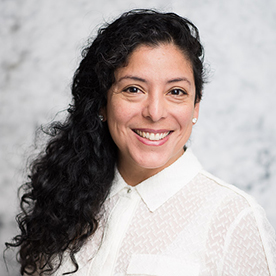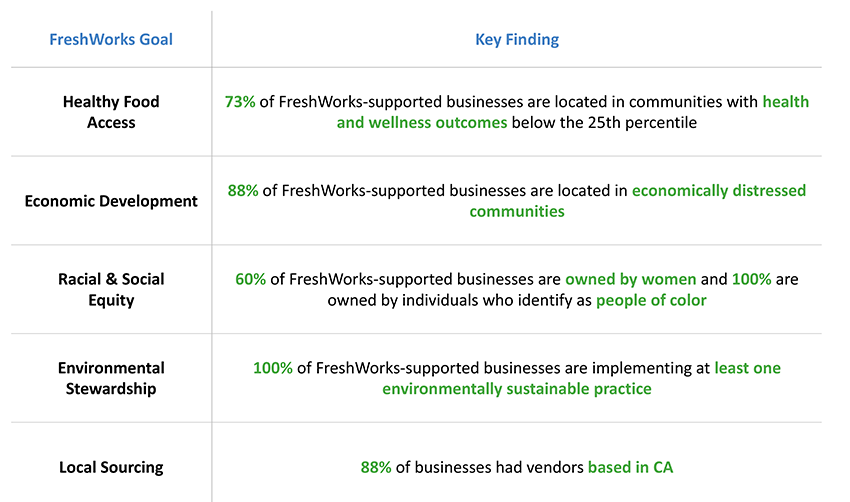Gatherings like the 2019 FreshWorks Summit are important opportunities to hear directly from entrepreneurs in disinvested communities. It is their experiences that embody the health, economic, and social inequities of our food and financing systems. For healthy food access to be a reality for all communities we (i.e. financial institutions) have to listen and learn how we can best provide support. To put this value into practice, this year’s Summit was designed a bit differently from previous years.
In past years, the Summit has been a place for lenders and funders who focus on healthy food access to come together to discuss trends in the field of healthy food financing. This year, we engaged our full range of stakeholders because we wanted the conversations grounded in the reality of the type of entrepreneurs and organizations that FreshWorks aims to support. We invited nonprofit leaders and entrepreneurs seeking to address issues of food security and healthy food access in their communities, technical assistance providers helping to build capacity for organizations and businesses, lenders who are innovating ways to financially back community-based projects and businesses, and people with an interest in healthy and equitable food systems to attend and help design the Summit.
Our commitment to listening is rooted in our knowing that people have the solutions to the issues they face. As such, the 2019 Summit was informed by previous years of organizing work in the San Joaquin Central Valley and FreshWorks’ stakeholders. The planning started with a stakeholder survey to identify the topics of greatest interest. From the results we learned that there was a strong desire for a nuanced discussion of how people are operationalizing racial equity to address structural racism in the food and financing systems. Specifically, people were interested in how to scale hyper-local solutions, remove barriers to capital for businesses, and to learn about the different types of models of healthy food access that exist in California’s rural and urban neighborhoods. This feedback became the topics featured in the breakout sessions.
Along with opening up the planning process, we also wanted to center power building, equity, and racial justice. To honestly do this we knew we had to hear directly from the people who are most impacted by the social and economic inequities that FreshWorks was created to address. Panels included individuals who are developing food projects or operating food-related businesses along with the institutional partners who have traditionally convened at the FreshWorks Summit. As panelists, the folks working on their business or project to increase healthy food access had a platform to describe, in their own words and stories. what they need, the barriers they face, and how some have successfully navigated those barriers. Throughout the day, investors, funders, lenders, and other attendees had the opportunity to hear from individuals about their firsthand experience with financial disinvestment and discrimination.
In the morning session, Rural Communities: Context & Strategies, Dennis Hutson, a retired Air Force Chaplain and retired United Methodist Pastor, shared his story about why he founded The Allensworth Corporation (TAC). Located on 60 acres of farm land that was purchased from an aging farmer, TAC’s mission is to help revitalize the town of Allensworth through a community owned and operated closed loop organic farming system that produces rabbits, fertilizer, earthworms, and specialty crops. Allensworth is a small town located about 40 miles north of Bakersfield. It was established in 1908 as the first all-black town in California by a group of African American men led by Colonel Allen Allensworth.
Located in the Central Valley, Allensworth started building a strong agriculturally-based economy. After not receiving water that was rightfully theirs the town’s economy declined as farmers left to work elsewhere. Allensworth’s economy and population saw further decline in the 1940s as people left for war industry jobs in the Bay Area, and again in the late 1960s when arsenic was found in the water. Hutson now preaches through his actions as he works with others to cultivate a locally-based food system as an economic driver for the people tending the land and greater Allensworth community.
“My responsibility is to be faithful to what I was given to do. My actions will hopefully inspire people and give people hope. If people have hope, then they can start to look at possibilities for a better life.”
– Dennis Hutson, The Allensworth Company

